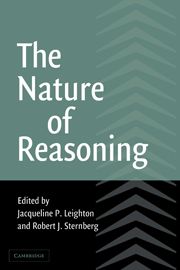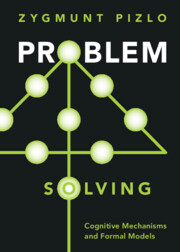The Psychology of Problem Solving
Problems are a central part of human life. The Psychology of Problem Solving organizes in one volume much of what psychologists know about problem solving and the factors that contribute to its success or failure. There are chapters by leading experts in this field, including Miriam Bassok, Randall Engle, Anders Ericsson, Arthur Graesser, Keith Stanovich, Norbert Schwarz, and Barry Zimmerman, among others. The Psychology of Problem Solving is divided into four parts. Following an introduction that reviews the nature of problems and the history and methods of the field, Part II focuses on individual differences in, and the influence of, the abilities and skills that humans bring to problem situations. Part III examines motivational and emotional states and cognitive strategies that influence problem solving performance, while Part IV summarizes and integrates the various views of problem solving proposed in the preceding chapters.
- The book contains chapters from leading researchers in the field of problem solving
- Unlike other books on this topic, this one focuses on the factors that influence individuals' problem solving performance
Reviews & endorsements
'A good book on any subject should summarise the current state of knowledge, and point to the important areas where further work is needed, and this book does both. Overall, this is a very stimulating collection, which all researchers in problem solving will wish to consult.' Trends in Cognitive Sciences
Product details
October 2003Paperback
9780521797412
408 pages
231 × 125 × 24 mm
0.54kg
14 b/w illus. 6 tables
Available
Table of Contents
- Part I. Introduction:
- 1. Recognizing, defining, and representing problems
- 2. The acquisition of expert performance as problem solving: construction and modification of mediating mechanisms through deliberate practice
- Part II. Relevant Abilities and Skills:
- 3. Is success or failure at problem solving complex problems related to intellectual ability?
- 4. Creativity: a source of difficulty in problem solving
- 5. Insights about insightful problem solving
- 6. The role of working memory in problem solving
- 7. Comprehension of text in problem solving
- Part III. States and Strategies:
- 8. Motivating self-regulated problem solvers
- 9. Feeling and thinking: implications for problem solving
- 10. The fundamental computational biases of human cognition: heuristics that (sometimes) impair decision making and problem solving
- 11. Analogical transfer in problem solving
- Part IV. Conclusions and Integration:
- 12. Problem-solving, large/small, hard/easy problem-space/problem-solver: the issue of dichotomization.











